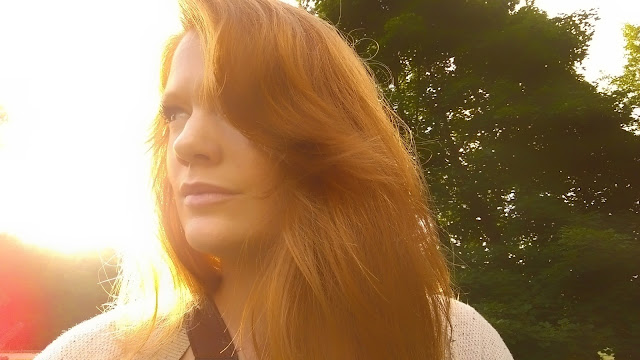My Sacred Grove Experience: Thoughts on Being a Mormon and believing Joseph Smith was a Prophet
 |
| Just me wandering through the Smith homestead. Palmyra/Manchester, NY |
This is from a journal entry that I wrote at the Sacred Grove in Palmyra, New York:
I'm sitting in the Sacred Grove and a lot of thoughts are filling my mind. This whole past weekend has given me a lot to think about in terms of my religiosity and culture.
I am so grateful to be a Mormon and to have been raised with the Gospel of Jesus Christ. I can see what a blessing and safeguard the Gospel and its principles have proven to be.
The older I get and the more confrontations with the world's ideas/ideals of how life should be lived and what's "normal" I experience the more I can see what beauty, peace, and hope are offered through living the standards of the Church of Jesus Christ of Latter-day Saints.
I don't bemoan or resent what I "don't have" because of what the Gospel naturally filters out. In fact, I am thankful for how much the Gospel fills up my life to the point of brimming over, leaving no room for the world's counterfeit offerings.
I feel like I'm beginning to understand what Christ meant when He told the Samaritan woman at the well that if she drank the water from that well (the world's offering), she would only live to thirst again. But, if she drank from the water He offered her (the Gospel), she would find in herself a well of water springing up and never thirst again.
The world runs on the fear of scarcity and the fear of being judged by others. It's as if people live in constant fear of missing out on something or being seen missing out on something. That's what the world has to offer. Fear. Worry. Empty promises.
But, if we trust God, if we trust His Son, we are offered such a rich and expansive spiritual, emotional, intellectual depth of understanding. Life feels like enough when you pause a moment to see it through the lens of the Gospel.
Also, more specific to this place, I think I now understand when Joseph Smith became a prophet. Not at the first vision, not when he found his first seer stone. Not when he was first ministered to by angels, not when he first obtained the plates, not even when he began translating the Book of Mormon. I think Joseph first became the prophet of the Restoration after he realized that Martin Harris lost the 116 pages of that first manuscript.
In the moment he realized that unthinkable mistake, I think he became a prophet.
I think about those two times Joseph asked God to allow Martin to take the pages to show his family, God knew he needed to say no twice before saying yes, not because His will changed, but because Joseph needed to understand that the loss was an immeasurable mistake, not a result of good intentions or malicious, conspiring men, but Joseph's own unthinking, worldly-approval-seeking ways.
Earlier, I was standing in the kitchen of the Smith house where Joseph received that news. The kitchen connects to the sitting room and family room in a circular way. The sister missionary told me that Lucy Mack Smith wrote that when Martin told Joseph, he (Joseph) stood in devastation and began pacing in a circle through those three rooms, inconsolable until well after sunset (around 9pm or for approx. 4-6 hours).
I imagine that young man (younger than me) realizing what a mess of things he had made, unable to respond to Martin's cries of losing his soul, unnoticing of his sisters' and mother's weeping.
I think in those hours of contemplation, of feeling like a damned soul, Joseph became a prophet. It was there and then he began to understand what he was called to do. He had known he would play a key role in the unfolding of the Kingdom of God for nearly a decade by that point, but I don't think he really took on that prophetic role until he saw it slipping away.
Joseph lived in that messy gray area of good intentions and mistakes that all people must live their lives. Some days were better than others. Joseph made mistakes and achieved triumphs, he also occasionally abused and mismanaged his power, but also humbly served the Lord to the best of his abilities.
In the end, he did as he was called to do: restore the Church and Gospel of Jesus Christ to the earth again through the direction of God, to the best of his abilities.
I read that Parley P. Pratt (or was it W.W. Phelps?) said that he often disagreed with Joseph and always saw Joseph's mistakes, that he was never blind to Joseph's follies, but instead was keenly aware of them in a deeply grateful way. He said that Joseph's deeply flawed nature taught him that if such a sin-ridden man could be called to do such a marvelous work, then maybe he too could be made into something more.
I think I'm starting to understand that. And I can't help but agree.
I'm grateful to Joseph Smith, but mostly I am profoundly grateful to my Heavenly Father and my Savior for bringing forth, out of less than ideal circumstances, the doctrines and covenants necessary for, not only eternal salvation, but the peaceful existence that comes from drinking of the Living Water.

Comments
Post a Comment